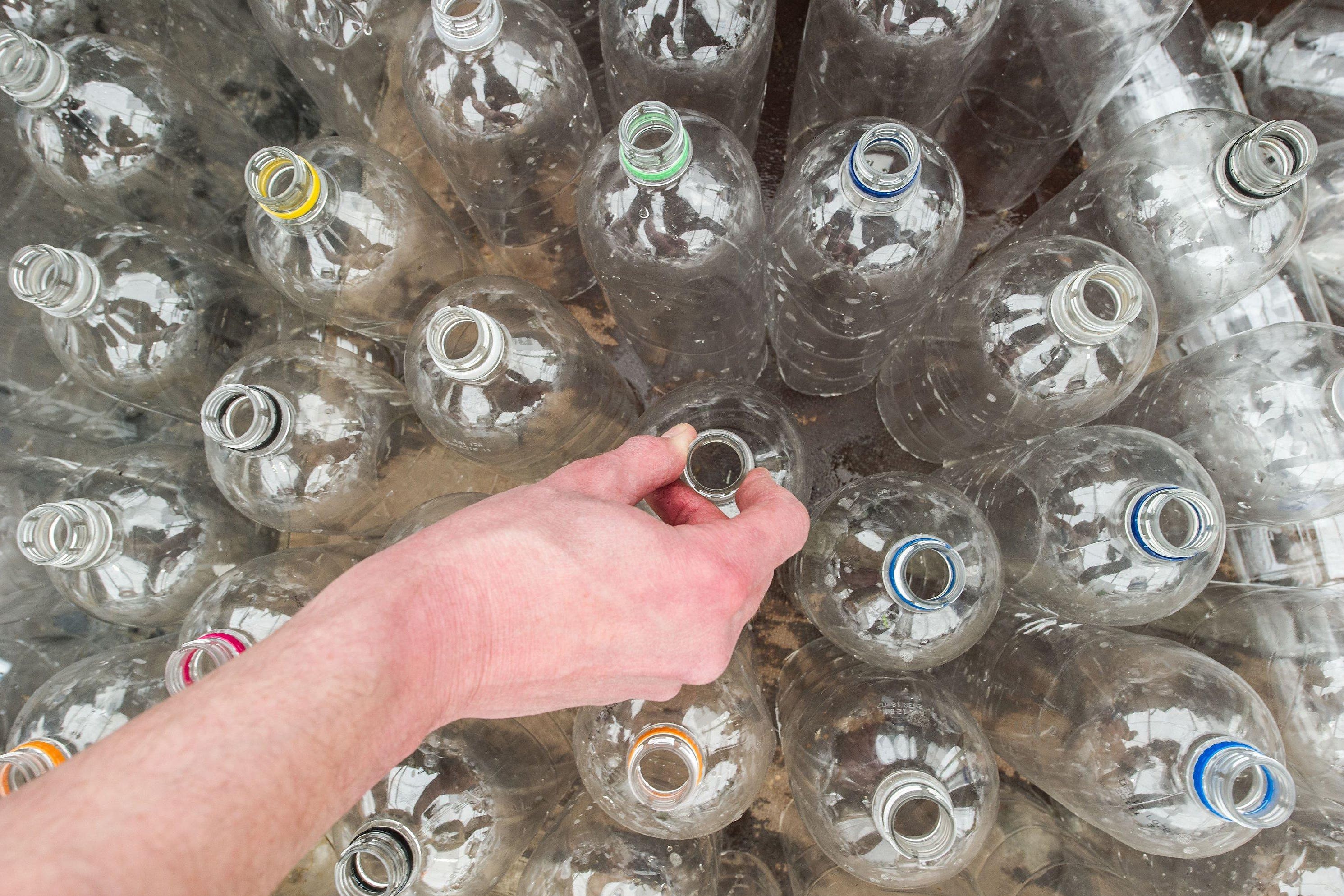Coca-Cola and Nestle accused of greenwashing over bottle recycling claims
A European consumer group and environmental campaigners have issued a legal complaint.

Your support helps us to tell the story
From reproductive rights to climate change to Big Tech, The Independent is on the ground when the story is developing. Whether it's investigating the financials of Elon Musk's pro-Trump PAC or producing our latest documentary, 'The A Word', which shines a light on the American women fighting for reproductive rights, we know how important it is to parse out the facts from the messaging.
At such a critical moment in US history, we need reporters on the ground. Your donation allows us to keep sending journalists to speak to both sides of the story.
The Independent is trusted by Americans across the entire political spectrum. And unlike many other quality news outlets, we choose not to lock Americans out of our reporting and analysis with paywalls. We believe quality journalism should be available to everyone, paid for by those who can afford it.
Your support makes all the difference.Coca-Cola, Danone and Nestle have been accused of greenwashing over claims about their plastic bottles being “100% recycled”.
The European Consumer Organisation (BEUC), backed by environmental groups Client Earth and Environmental Coalition on Standards (Ecos), has issued a legal complaint to the European Commission.
It focusses on the firms’ claims that the single-use, plastic water bottles they supply are either 100% recycled or 100% recyclable bottles.
But BEUC argues that this is misleading as the bottles are never made entirely of recycled materials.
Be it about buying new clothes, opening a bank account or buying water bottles, consumers increasingly want to make the most sustainable choice and seek reliable information to do so
It said the lids cannot be made from recycled materials under EU law, labels are rarely made from recycled material and adding non-recycled plastic to the body is common practice.
The organisation added that the use of green imagery or branding for many water bottles across Europe is also misleading to consumers.
It also said the term “100% recyclable” is ambiguous as since recyclability depends on many factors like available infrastructure to collect material; the effectiveness of the sorting process; or appropriate recycling processes.
BEUC filed the complaint to the Commission as well as the network of consumer protection authorities (CPC), calling on them to launch an investigation.
Ursula Pachl, deputy director general of BEUC, said: “Be it about buying new clothes, opening a bank account or buying water bottles, consumers increasingly want to make the most sustainable choice and seek reliable information to do so.
“However, they are bombarded with incorrect and deceptive claims, so they do not know which claim or label to trust.
“Using “100% recycled/recyclable” claims or displaying nature images and green visuals that insinuate that plastic is environmentally friendly is misleading consumers.
“Such claims, however, can be found on many water bottles sold across Europe. The problem is that there’s no guarantee it will be fully recycled once it’s in the bin. This greenwashing must stop.”
Justin Wilkes, executive director of Ecos, said: “Policymakers must set clear rules on recycled content that are implemented by standardised, reliable methodologies, putting an end to the Wild West of green claims.”
Rosa Pritchard, plastics Lawyer at ClientEarth, said: “The reality is single-use plastic is neither circular nor sustainable.
“Recycling can never catch up with the sheer volume of plastic produced on our planet.
“Companies are in a unique position to change how we consume but currently these claims – which we consider to be misleading – are making it hard for consumers to make good environmental choices.”
A spokesperson at Coca-Cola Great Britain said: “We’re working to reduce the amount of plastic packaging we use, and we’re investing to collect and recycle the equivalent of the packaging we use.
“We only communicate messages on our packaging that can be substantiated, with any relevant qualifications clearly displayed to enable consumers to make informed choices.
“Some of our packaging carries messages to drive recycling awareness, including whether our packages are recyclable and if they are made from recycled content.
“We have an ambitious goal to collect and recycle a bottle or can for each one we sell by 2030, and we support well-designed deposit return schemes across Europe which we know can help us get our packaging back.”
A spokesperson for Danone said: “At Danone, we strongly believe in the circularity of packaging and will continue to invest and lead the campaign for better collection and recycling infrastructure alongside our partners.
“We have also made real progress on our journey to reducing single use plastic and virgin plastic use in parallel (-10% in absolute since 2018).”
Nestle has been contacted for comment.